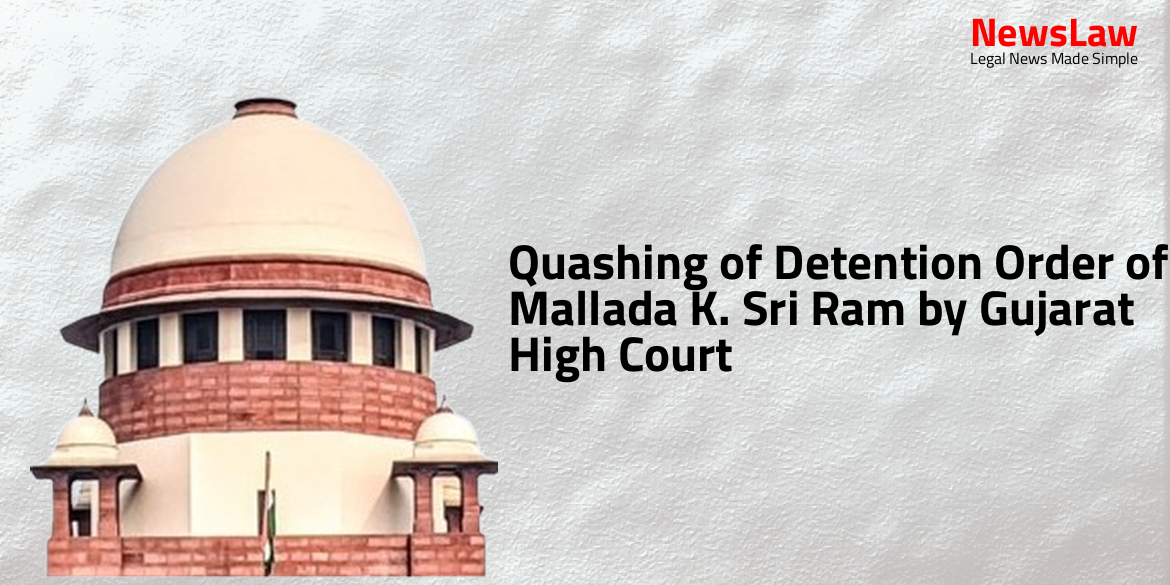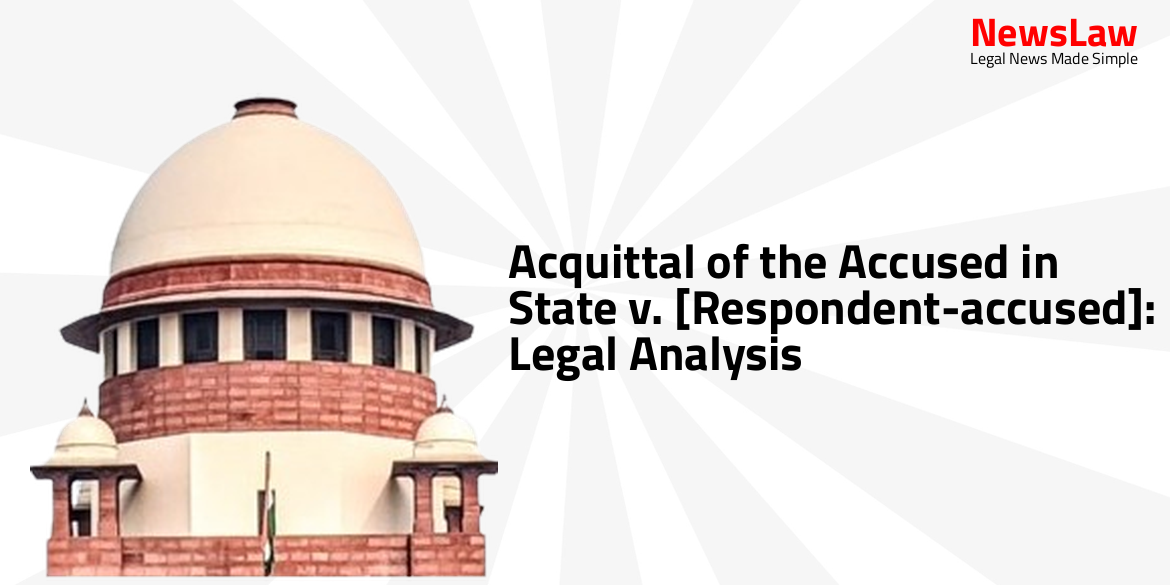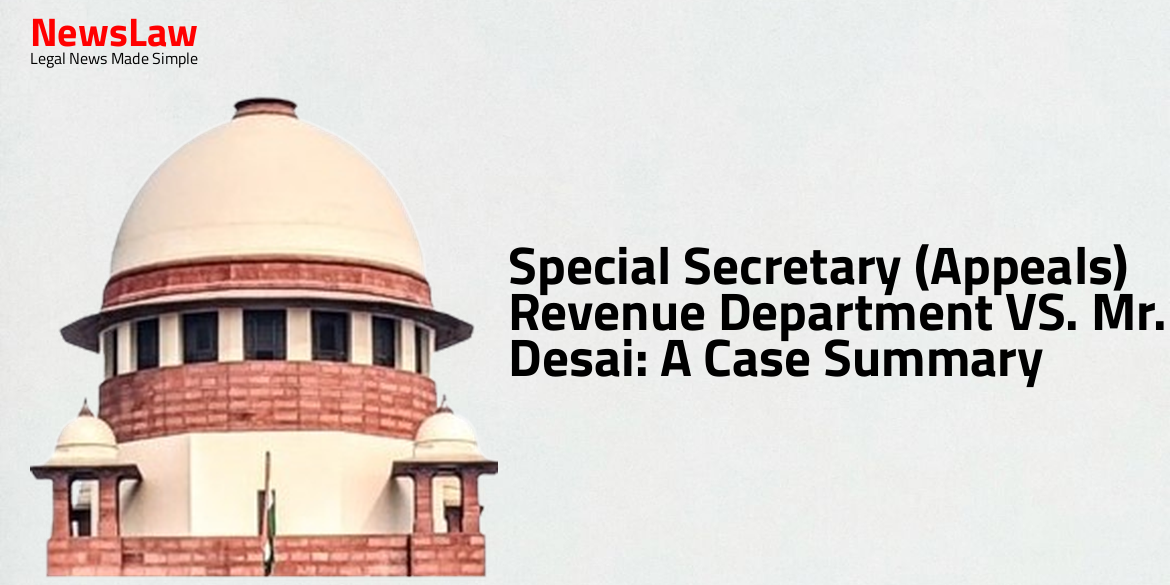In a significant development, the Gujarat High Court has quashed the detention order of Mallada K. Sri Ram, emphasizing the importance of constitutional safeguards in preventive detention cases. The court’s decision reflects the necessity for detaining authorities to properly assess the grounds for detention, as seen in this case involving activities alleged in FIRs. Stay updated on this crucial legal ruling. #LegalCase #HighCourt #DetentionOrder #ConstitutionalSafeguards
Arguments
- The advocate for the petitioner asserts that the order of detention should be quashed and set-aside.
- The detaining authority based the order solely on the registration of four FIRs for various offenses under the Indian Penal Code.
- The grounds cited in the FIRs do not bring the petitioner within the definition under Section 2(c) of the Act.
- The detaining authority has not considered the fact that the petitioner – detenue is released on bail in all the offenses.
- The learned AGP for the respondent-State has supported the detention order passed by the detaining authority.
- Sufficient materials and evidences were found during the investigation indicating the detenue’s habit of indulging in activities defined under Section 2(c) of the Act.
- The detaining authority has rightly passed the order of detention based on the facts of the case.
- The activities alleged cannot be directly linked to the maintenance of public order but may relate to a breach of law and order.
Analysis
- Authorities must consider Articles 21 and 22 of the Constitution of India while passing detention orders
- Detention orders should have strict constitutional safeguards against abuse
- Allegations must be relevant to classify a person under Section 2(c) of the Act for detention
- Detainee must be proven to be a threat to public order to fall under Section 2(c) of the Act
- District Magistrate can act to prevent subversion of public order, not for maintaining law and order in normal circumstances
- Subjective satisfaction of the detaining authority must be legally valid and in accordance with the law
- Offenses alleged in the FIRs must have a bearing on public order to be applicable under the Act
- The order does not mention any application for bail cancellation by State authorities
- Lack of specific material showing detainee’s behavior as a danger to public order
- Failure to consider material circumstances affecting subjective satisfaction of the detaining authority
- The FIRs registered against the detainee can be handled by ordinary criminal law procedures
- Disturbance of law and order leading to disorder is not sufficient for action under the Defence of India Act, but disturbances subverting public order are.
- Routine and unjustified use of Preventive Detention Law in Telangana was noted in the case of Mallada K. Sri Ram vs The State of Telangana & Ors.
- The distinction between disturbance to ‘law and order’ and ‘public order’ has been settled by the Apex Court in various cases.
- Preventive detention should not be a substitute for ordinary law and investigating authorities’ functions.
- Preventive detention for most cases is for a year only and should not be used to keep a person in perpetual custody without trial.
- The Constitution ensures that exceptional powers of preventive detention do not lead to arbitrary exercise of state authority.
- Public order must lead to public disorder if disturbed; every breach of peace does not lead to public disorder.
- Detention orders under the Telangana Act of 1986 have been quashed due to incorrect application of standards for maintenance of public order.
- Number of detention orders set aside by the High Court of Telangana indicates a callous exercise of preventive detention powers.
- The expression ‘public order’ does not encompass every kind of infraction of order; rather, it must affect the community or public at large.
- Article 22 cannot be read in isolation but must be read as an exception to Article 21
- Exception can apply only in rare and exceptional cases
- Personal liberty protected under Article 21 is sacrosanct and high in the scale of constitutional values
- Detaining authority must show that the detention accords with the procedure established by law
Decision
- The impugned order of detention dated 19.01.2024 is quashed and set-aside.
- The petitioner – detenue is ordered to be set at liberty forthwith, if not required in any other case.
- Direct service is permitted.
- Rule made absolute to the aforesaid extent.
Case Title: PUMNACHAND @ PUNACHAND S/O LAKSHMIDHAR SAHU Vs. STATE OF GUJARAT
Case Number: R/SCA/2365/2024



